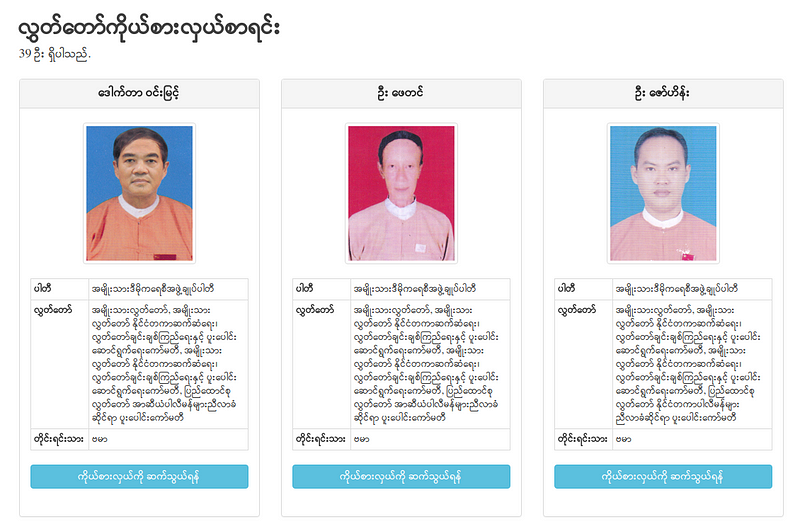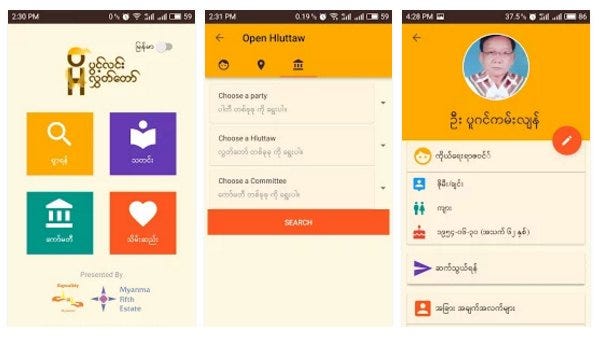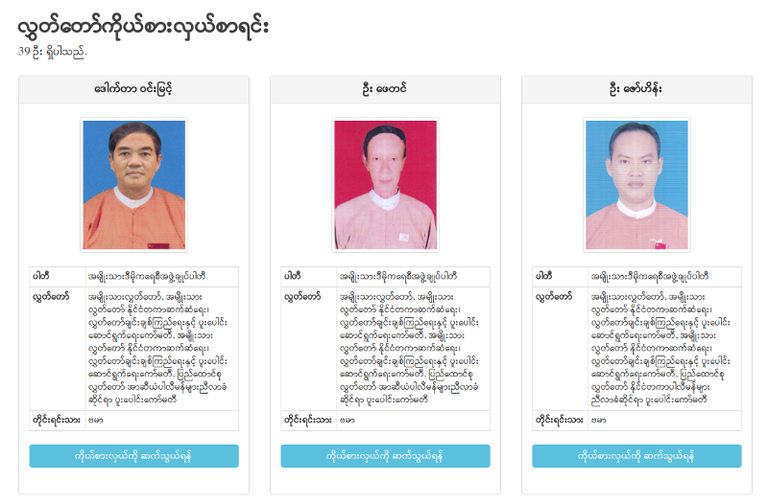
Why are there no electoral or elected representative apps for Malaysia?
Building the infrastructure and acquiring the data needed to build useful electoral apps is a hard problem that is often overlooked
Upcoming OpenHluttaw Mobile App for Myanmar
API
To build data driven applications web or mobile, you usually need to get data from an Application Programming Interface (API). This is what developers use to get data for their applications which they then use to display information in mobile applications and websites. When there is a public API with open data available, it opens up an environment where developers can use it to build innovative and usefull applications.
Introductory video from Sunlight Foundation (US) on APIs
Open Standards Based Legislative and Government API
You will need a good open standards based API that has been collaboratively developed and tested to handle a variety of uses cases. The Popolo international open government data standard is already there, has been developed and actively used by a number of international open government initiatives. Adopting good existing open standards, allows you to build upon the work of others.
You might also need to develop and publish a secondary helper API that provides simpler API for more specific use cases, which may require additional custom queries or joined up queries not provided by the core API.
The APIs will need to be able to return which committees politicians belong to, which legislative houses they belong to, which political party they represent, their photos, their contacts and so on.
Sinar Project has taken over maintenance of Popit API service, and has rewritten it for needs of countries with opaque governments or lack of capacity, where governments do not have the ability yet to provide reliable open data. These needs will be covered in the data section later in this article.
There are already two examples of these PopIt Popolo standards based APIs used in two countries, with Myanmar having more complete legislative data at this time.
- Malaysia
https://api.popit.sinarproject.org - Myanmar
api.openhluttaw.org
Administrative Boundary API
If you want to lookup a elected representative given an address or location point, you will need an API that will return which electoral area and then looks up who the current representatives are.
There are two open source components for this a country can set up:
- MapIt boundary service by MySociety UK
- Represent Boundaries by Open North, Canada
Malaysia’s current service for parliamentary and state boundaries is available at: https://mapit.sinarproject.org
Data
Once you have your APIs services up, they need to be serving data. This is a big challenge in countries with opaque governments, or where government technical or information capacity is lacking and the data is not available whether in physical or digital form.
Did you know that we have nothing beyond photo, contact details and party affiliation for 2/3 thirds of Malaysian parliament?
Using Malaysia as an example, there is limited on-line public information for 156 of Malaysia’s 222 MPs. We don’t know their education background, their professional background, their assets and interests (not the hobby kind, the membership in corporate boards, professional bodies, lobbying organisations and so on). You would not hire a person without at least their CV, but in Malaysia and many other countries we vote people to run our countries without asking for basic information.
Often even the basic official information such as contact numbers, emails and address are also wrong or out of date.
For Malaysia, the official source for contact information from parliament website is not up to date. A database is important in this case, because often the correct information is hard to come by, and is found in bits and pieces over time. A central open database allows developers to build applications with an API that provides the best known information at the time. Or write crowd sourcing applications to help improve the data.
Someone or ideally a group of organisations will need to come together to continually work keeping the data up to date. In Malaysia it was cooperation between two NGOs, Malaysian Centre for Constitutionalism and Human Rights (MCCHR) and Sinar Project. In Myanmar, the data comes from a coalition OpenHluttaw or Open Parliament which worked with Sinar Project to synchronise and import data from a spreadsheet into their open parliamentary API.
Many Bothans died to get us this information
For opaque authoritarian governments like Malaysia this information is hard to get, and for good reason. A politically activated citizen with information to contact and hold representatives accountable is dangerous for politicians or a regime’s hold on power.
Electoral map boundaries for Malaysia, required another NGO, Tindak Malaysia to pay to acquire physical maps to digitise. To make it harder, they could not get the maps from a single source, they had to get individual maps from different state offices throughout the country.
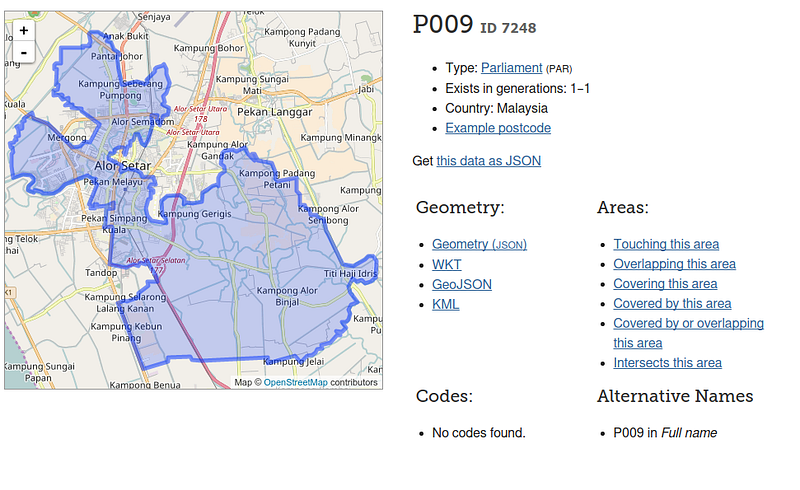
Government and Legislative Public API and data needs funding support
It is a continuous effort to improve and maintain an up to date and accurate government and legislative API service.
There are constant and increasing demands for innovative electoral democratic tools that empower citizens, yet there is often no public support for the civil society organisations that maintain these enabling services.
Support the efforts of the civil society organisations working to make the data available via robust public APIs and you will start seeing the mobile apps and other innovations for democratic tools that empower citizens.
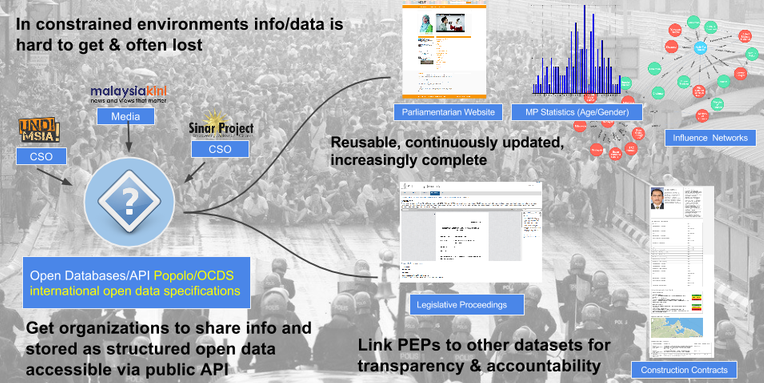
Single API/DB is used for web applications from MP websites to transparency and anti-corruption tools
